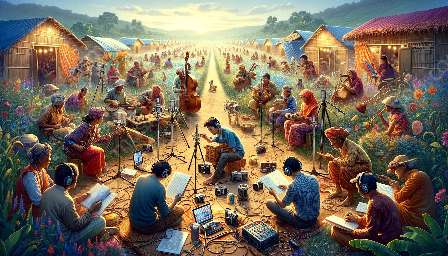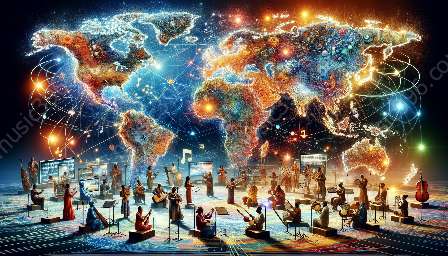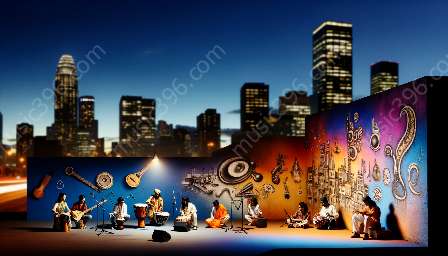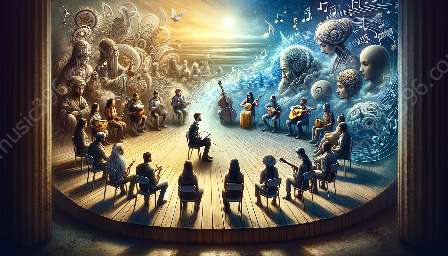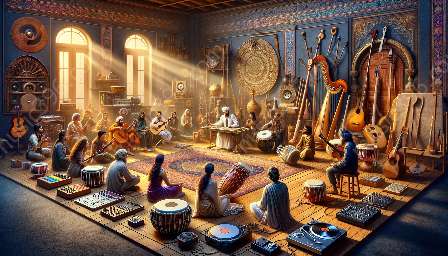Music has long played a pivotal role in shaping individual identity, influencing cultural practices, and reinforcing personal and collective narratives. This article delves into the complex relationship between music and identity, drawing insights from the field of ethnomusicology to understand the profound impact of music on defining and expressing one's sense of self, belonging, and cultural heritage.
Understanding Music and Identity
At its core, identity is a multifaceted concept encompassing an individual's self-perception, cultural affiliations, and social role. Music, as a universal language, offers a rich tapestry of sonic expressions that deeply resonate with people across diverse backgrounds. Whether through traditional folk tunes, contemporary pop anthems, or classical symphonies, music has the power to reflect and reinforce aspects of personal and collective identity.
Ethnomusicology: Unveiling Cultural Significance
Ethnomusicology, the academic discipline that explores the intersection of music and culture, provides valuable insights into how music functions as a conduit for identity formation and expression. By examining the diverse musical traditions found in various societies, ethnomusicologists uncover the intricate ways in which musical practices, rituals, and performances contribute to shaping individual and collective identities.
Music and Cultural Heritage
Music serves as a vital repository of cultural heritage, preserving and transmitting traditions, histories, and belief systems from one generation to the next. Through indigenous chants, national anthems, and regional genres, individuals forge a profound connection to their cultural roots, fostering a sense of belonging and continuity. The melodies and rhythms embedded within traditional music serve as a living testimony to the evolving tapestry of human identity.
Expressions of Self and Belonging
The act of engaging with music allows individuals to articulate and manifest their innermost feelings, aspirations, and affiliations. Whether through composing original pieces, performing renditions of beloved songs, or participating in communal musical events, people assert their unique identities while fostering a sense of community and belonging. Music offers a platform for self-expression, solidarity, and the celebration of diversity within a shared cultural milieu.
Musical Imprints on Personal Narratives
From childhood lullabies to adolescent anthems and beyond, music leaves indelible imprints on one's personal narrative. Certain songs become emblematic of pivotal life experiences, shaping memories, values, and emotional landscapes. These musical imprints intertwine with individual identity, serving as sonic markers that evoke nostalgia, resilience, and a sense of continuity amidst life's ever-changing currents.
The Power of Sonic Connectivity
Music transcends linguistic and cultural barriers, facilitating connections between individuals who might otherwise be divided by differences. Shared musical experiences create common ground for dialogue, empathy, and mutual understanding, enriching the tapestry of human identity with harmonious threads of interconnectedness.
Conclusion
In conclusion, music plays a multifaceted role in shaping individual identity, functioning as a mirror reflecting cultural heritage, a vessel for self-expression, and a bridge uniting diverse voices. Through the lens of ethnomusicology, we gain a deeper appreciation for the profound ways in which music intertwines with personal and collective narratives, weaving a rich tapestry of human identity that resonates across time and space.


